UNAIDS Strategy 2016-2021
On the Fast-Track to end AIDS
Putting people at the centre of the three zeros
Ending the AIDS epidemic and leaving no one behind in the response will profoundly affect the entire lifespan of millions of people around the world, for generations to come. The post-
AIDS world will be very different from the one we know today—and it is one we can create.
It will be a world in which every child is born HIV-free to healthy parents, and any child living with HIV receives the treatment, protection, care and support to survive and thrive into adulthood and old age.
Where, as children grow into adolescence, they are educated and receive adequate nutrition, they can access appropriate HIV and sexual and reproductive health services and they live free from violence and extreme poverty.
Where young people, regardless of where they live or who they are, have the knowledge, skills, services, rights and power to protect themselves from HIV.
Where a pregnant woman or breastfeeding mother living with HIV can access the services she needs to protect her health and that of her baby.
Where all people, regardless of their identity, choices or circumstances, have access to relevant HIV prevention services, voluntary HIV testing and affordable treatment and high-quality care and support services—including psychosocial, financial and legal services.
Where all people have the equal opportunity to grow, develop, flourish, work and enjoy prosperous and fulfilling lives, supported by enabling laws, policies and programmes that respect their human rights and address the social determinants of HIV, health and well-being.
Where all people, living with or without HIV, are able to live their lives to the fullest, from birth to adulthood and into old age, free from discrimination and with dignity and equality.
Time to take the Fast-Track: strategic leadership agenda
In the light of the need for change, this Strategy seeks to achieve a set of far-reaching and people-centred goals and targets that must be met by 2020 if we are to reach our 2030 ambition of ending the AIDS epidemic. The goals correspond to each of the three strategic directions, and include achieving by 2020:
- Fewer than 500 000 people newly infected with HIV
- Fewer than 500 000 people dying from AIDS-related causes
- Elimination of HIV-related discrimination
Fast-Tracking the response will require working closely with communities, countries and partners to undertake a series of transformative shifts at all levels:
- front-loading an increasingly diverse bundle of investments;
- laser-like focusing on the locations, populations and interventions that will deliver the greatest impact;
- catalysing innovation for people who need it most;
- leveraging regional leadership and political institutions for more targeted, sustainable and accountable responses;
- launching a new era of intersectoral partnerships to address the determinants of vulnerability, including discrimination and gender inequality;
- and committing to the GIPA principle (greater involvement of people living with HIV) and people-centred accountability under the 2030 Agenda for Sustainable Development.
The UNAIDS Strategy is a global one—guiding and supporting the global AIDS response.





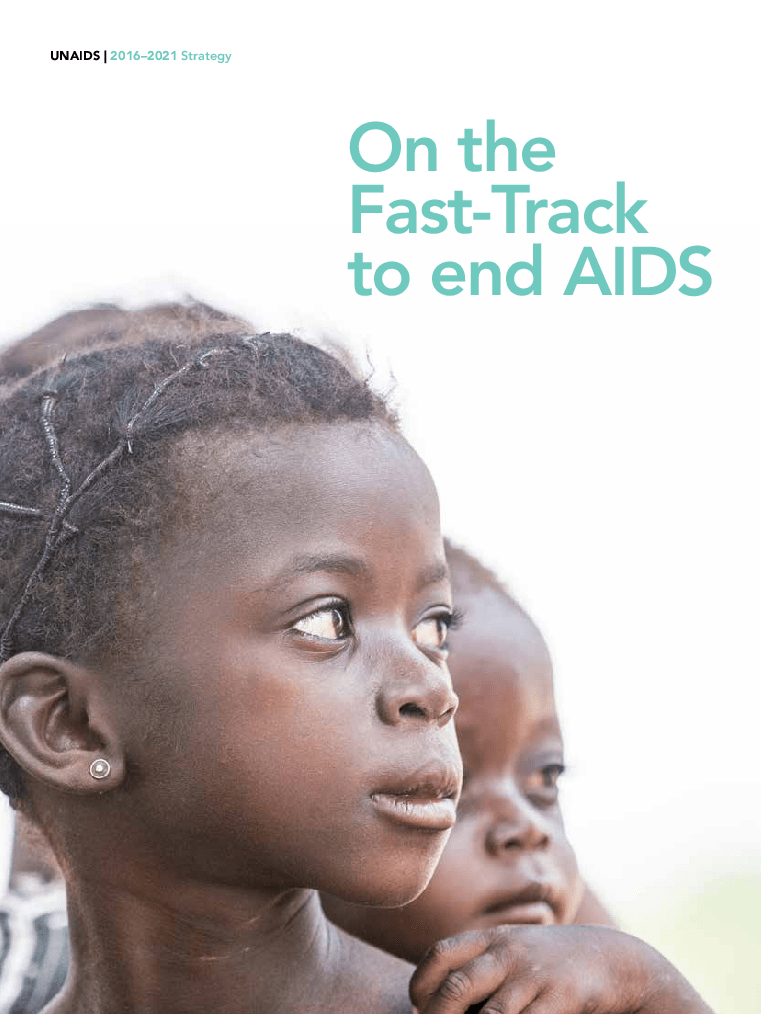
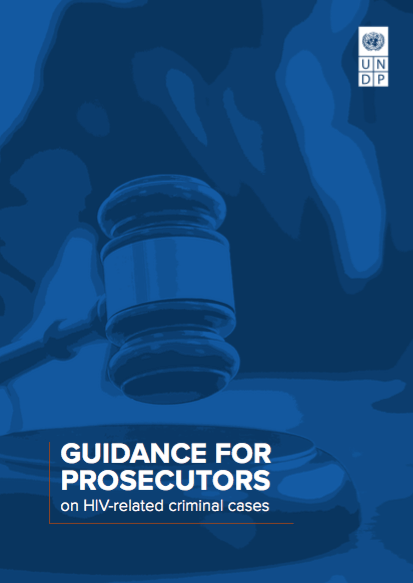 Guidance for prosecutors on HIV-related criminal cases.
Guidance for prosecutors on HIV-related criminal cases.
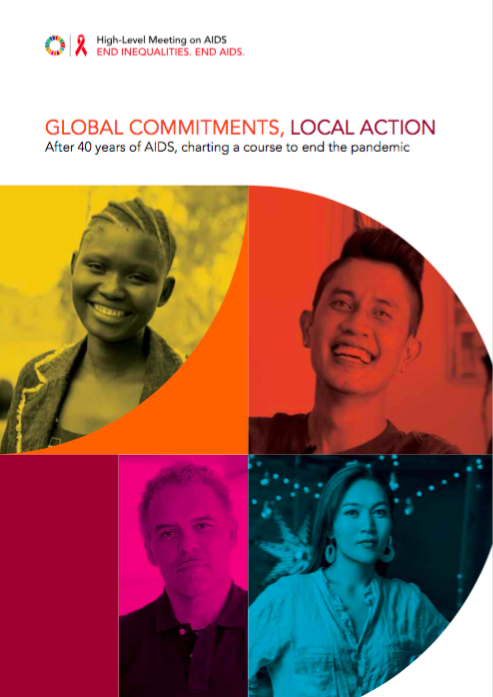 Global Commitments, Local Action. After 40 years of AIDS, charting a course to end the pandemic
Global Commitments, Local Action. After 40 years of AIDS, charting a course to end the pandemic
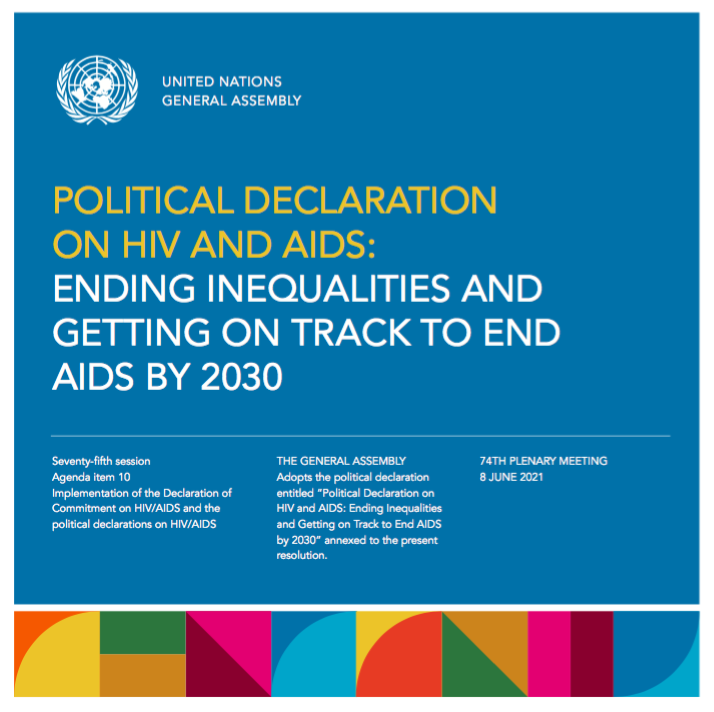 Political Declaration on HIV and AIDS: Ending Inequalities and Getting on Track to End AIDS by 2030
Political Declaration on HIV and AIDS: Ending Inequalities and Getting on Track to End AIDS by 2030
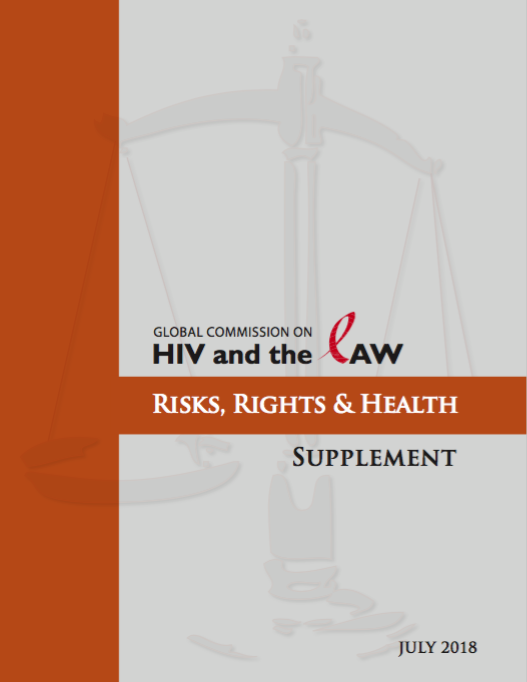 Supplement to the Report of the Global Commission on HIV and the Law “Risks, Rights & Health”
Supplement to the Report of the Global Commission on HIV and the Law “Risks, Rights & Health”